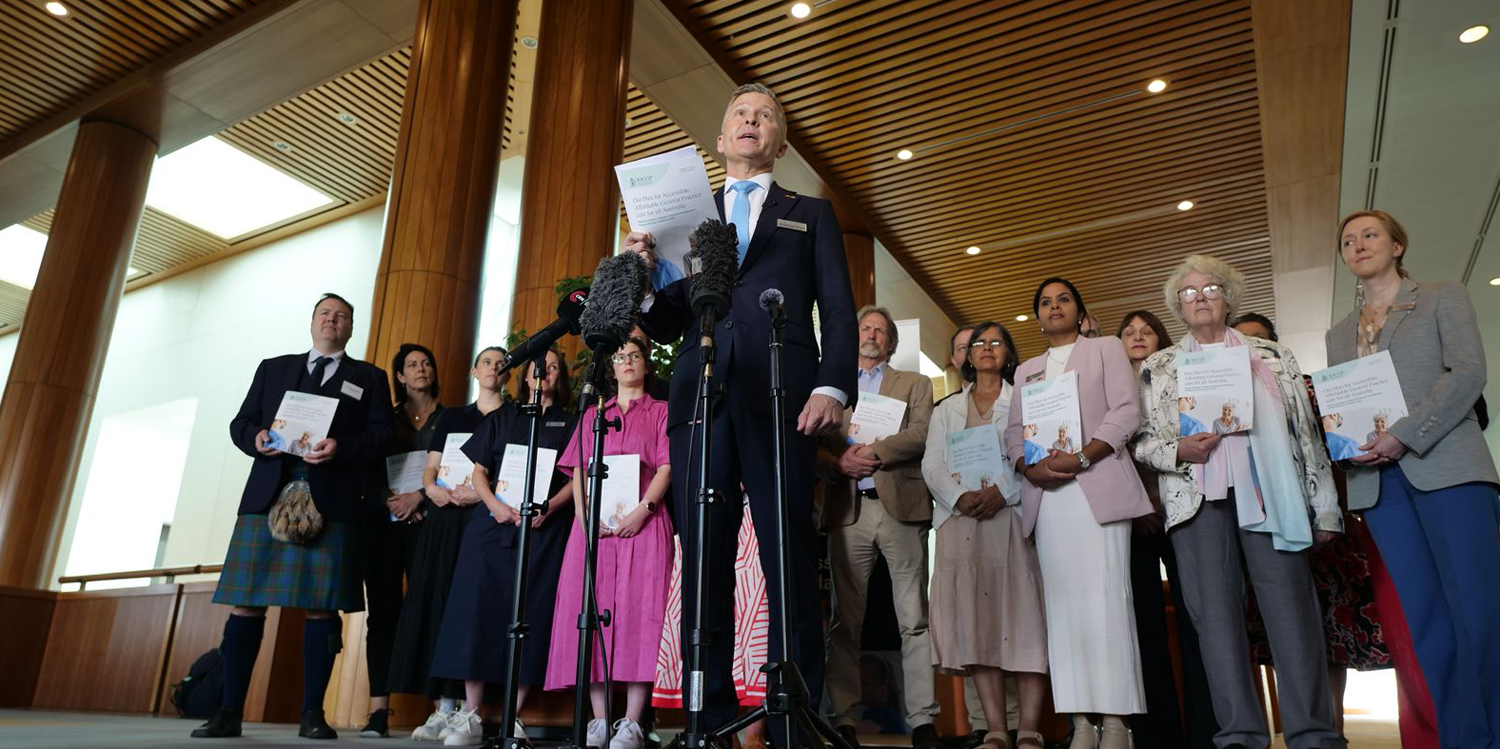
Billions of dollars promised for Medicare has been welcomed in part, but greeted with scepticism that it will increase the amount of bulk billing appointments.
Both Federal Labor and Liberals have made large funding promises to strengthen Medicare and boost bulk billing if elected at the Federal Election.
Labor has promised $8.5b Medicare funding if it is re-elected, which it claims would deliver an addition 18 million bulk billed GP appointments each year.
As part of the funding there would also be $265.2 million to expand GP training, with an extra 200 training places per year from 2026, increasing to an extra 400 places per year from 2028. A $30,000 junior doctor training incentive payment would also be introduced.
The Liberal party has promised to match the funding.
Under the proposal, the Medicare rebate for bulk billing practices for a standard consultation would be increased by up to 62% for a metro clinic,up to 98% for a small rural town clinic and 103% for a remote clinic.
Long and longer consultations, as well as mental health plan consultations, would also be increased from between 30% and 59%.
For fully bulk billing practices, there would be an additional 12.5% loading payment on their Medicare rebates on top of the new bulk billing incentive.
But several healthcare leaders have questioned how many GPs will take up the new funding, arguing that clinic costs are still too high for across-the-board bulk billing.
RELATED: AMA calls for longer GP appointments in $5bn Modernise Medicare campaign
AMA (WA) President Dr Michael Page said for many clinics the increased bulk billing incentive would not meet the costs of running a practice.
“In the face of ongoing inflation and the lack of underlying indexation of Medicare, it’s just not going to cut it for many practices particularly those in the inner city where the bulk billing incentive is lower,” Dr Page said.
Dr Page said the new funding appeared to focus on shorter consultations rather than incentivising longer consultations.
“Really what the AMA has been calling for is a better structuring of the MBS schedules so that longer consultations are better rewarded so GPs can spend more time with patients and actually sort out complex issues,” Dr Page added.

RACGP President Dr Michael Wright said the government needed to increase longer consult rebates by 40%, and patient rebates for mental health by 25%.
RELATED: RACGP unveils plan for more bulk billing and GP incentives
“Extending bulk billing incentives to everyone won’t necessarily mean everyone gets bulk billed, because patient rebates are still too low to cover the cost of care,” he said.
“More targeted funding to support people with chronic and complex conditions is still the most cost-effective way to improve Australia’s healthcare system.”
Dr Wright welcomed the training and GP incentive component of the proposed funding package.
“This will remove one of the most significant barriers to junior doctors choosing a career in general practice,” he said.
RELATED: Record number of trainee GPs
National Rural Health Alliance chief executive Susi Tegen echoed the concerns that doctors cannot afford to provide more bulk billing.
“High operational cost of quality healthcare services, and longer and more complex consults due to the comorbidity of rural Australians, result in many rural health services making a loss while trying to meet community needs,” she said.
“Many rural practices are already experiencing a thin or failed market, making it difficult to cover costs. The newly announced Government measures will do little to change that reality.
“The success of these incentives hinges on having a local workforce… Many communities face severe shortages of doctors, nurses, dentists, and allied health professionals. A multi-pronged approach will ensure equitable access to Medicare.”
RELATED: General practice a key battle ground in State election
The Australian GP Alliance said expanding the proportion of people eligible for bulk billing is not the answer to improving access to primary care.
“If the Government wants patients to have zero out-of-pocket expenses it must set rebates at a levels which reflect the true cost of providing care,” Deputy Chair Dr Mukesh Haikerwal said in a statement.
The new funding proposal also includes $10.5 million for 400 scholarships for nurses and midwives to extend their skills.
The Australian College of Rural and Remote Medicine, General Practice Registrars Australia, the Health Service Union and the Australian Nursing and Midwifery Federation have all welcomed the funding.
Want more news, clinicals, features and guest columns delivered straight to you? Subscribe for free to WA’s only independent magazine for medical practitioners.
Want to submit an article? Email editor@mforum.com.au

